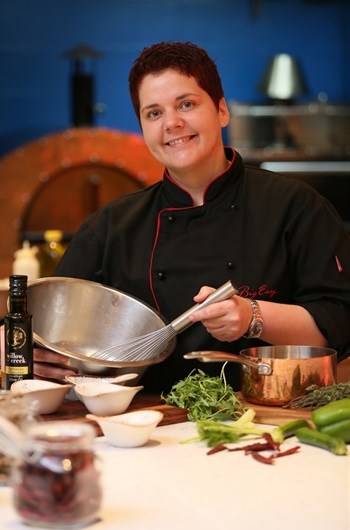
Related





Urban food gardens produce more than vegetables, they create bonds for young Capetonians – study
Tinashe P. Kanosvamhira 3 Feb 2025

Top stories






More news


Marketing & Media
Ads are coming to AI. Does that really have to be such a bad thing?














Be it water, electricity or the money in your pocket – we are constantly being encouraged to do our bit to save, be resourceful and thrifty.
Starting a herb and veggie garden is one way of saving pennies and water – most herbs need very little watering and produce a crop in a relatively short period of time.
At Big Easy Durban, because of our bulk requirements, we obtain our herbs from our main veggie supplier who sources them from a variety of independent suppliers around town – one of them being Herbs On the Hill based in Hillcrest.
There is nothing more satisfying than plucking the fruits of your harvest and adding them to the pot or your dish before serving while nonchalantly commenting: “I grew them myself.”
Even if you don’t have a garden, you can grow herbs in containers and place them in a sunny spot inside your home. Some of the easiest herbs to nurture include basil, chives, rosemary, and thyme.
These plants have many amazing qualities and are full of antioxidants and essential nutrients. They can equip the body to fight against germs, toxins and boost the immune system; be used as an anti-inflammatory, assist in reducing blood sugar, cholesterol, and blood pressure, improve memory and digestion and act as an antiseptic.
Use herbs to add great flavour to salads, punch to sauces, produce great pesto or sprinkle atop roasts for a tasty crust. Half of the health value of plants is lost within thirty minutes of harvesting – so to get their full nutritional worth, toss the herbs into your cooking straight from the garden or plant container.
If you are starting your herb garden from seed, be aware that plants begin germinating from anything between four days to 14 days. Be patient with the slow-growers like sage and thyme (which may take up to 21 days), parsley can sometimes take up to four weeks.
If you are a beginner gardener start with seedlings (instead of seeds) for a quicker crop – basil is the easiest, most rewarding performer. Once this plant is doing nicely, move on to oregano, mint, rosemary and thyme.
All you need is a jam glass jar, and some cloth to cover it. Sprouts are also nutritious (packed with protein, essential vitamins, minerals and dietary fibre), grow really well indoors, are great for salads and only require a small amount of water to grow.
Tips for growing herbs: ensure the plant has great drainage and don’t overwater; harvest leaves from the top of the plant; add rich compost to potting soil and place plants in sunny spots (most herbs love the sun).
Growing herbs is a fun, money-saving hobby that also happens to be good for your health.
